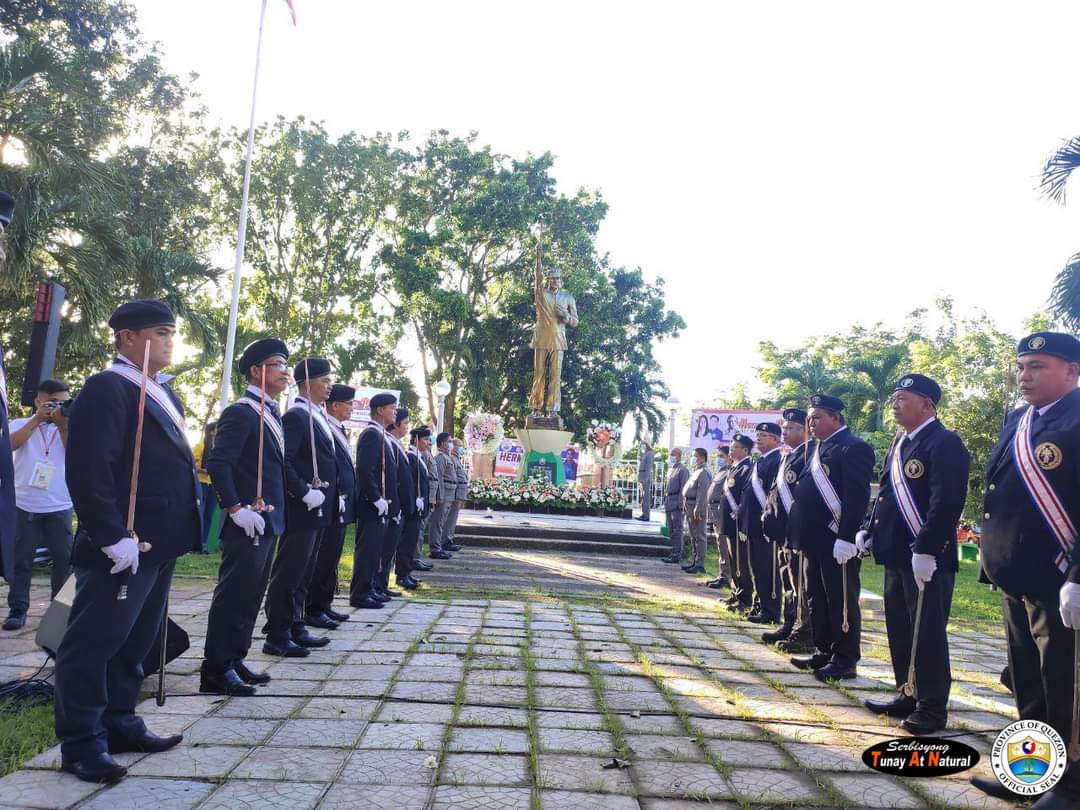Quezon folk mark death anniversary of ‘Hermano Puli’: Hero sacrificed life for religious freedom

Residents and officials of Quezon province on Friday (November 4) commemorate the 181st death anniversary of local hero Apolinario de la Cruz, popularly known as “Hermano Puli.” (Photo from the Facebook page of Gov. Angelina Tan)
LUCENA CITY — Quezon Gov. Angelina Tan hailed the heroism and sacrifices of local hero Apolinario de la Cruz, popularly known as “Hermano Puli” for the freedom of religion in the country.
“We can now freely express our religious beliefs because of Hermano Puli,” Tan said in her speech during the commemoration ceremony Friday on the 181st death anniversary of the hero.
Tan said the present generation of Filipinos should be thankful to De la Cruz for the freedom that they enjoy to exercise their own spiritual faiths.
De la Cruz was the founder of Cofradia de San Jose, a Filipino-only Christian confraternity that led a major revolt against Spanish rule in 1841 based on a struggle for religious freedom and independence.
The commemoration was held early morning at the foot of the De La Cruz monument on Maharlika highway in Isabang village in neighboring Tayabas City.
Article continues after this advertisementTan and Vice Governor Anacleto Alcala III led local officials and employees, members of non-government organizations, policemen, and soldiers in a floral offering at the hero’s monument.
Article continues after this advertisementLocal governments across the province also held their respective commemoration ceremonies.
De la Cruz was born on July 22, 1815, in Lucban town in Quezon province. He had wished to become a priest but was discouraged by Spanish friars because he was a native, or an “indio.”
At 17, De la Cruz founded the Cofradia de San Jose and attracted followers in Tayabas; the provinces of Laguna, Batangas, and Cavite, Tondo in Manila, and some parts of the Bicol region.
He tried to seek recognition for his organization from Spanish Church leaders, but Cofradia’s pure Filipino-only membership led authorities to suspect that it was a subversive group disguised as a religious society.
The members were forced to go underground.
On November 1, 1841, Spanish soldiers attacked De la Cruz and his followers. He escaped but was eventually captured and executed on November 4 in Tayabas.
To serve as a warning to his followers, the Spanish soldiers cut his body into pieces while his head was placed in a cage and hung on a pole along the road.
According to historians, the heroism of De la Cruz inspired three Filipino priests—Mariano Gomez, Jose Burgos and Jacinto Zamora—whose martyrdom provoked the people to rise against the tyranny of Spanish rule and fight for freedom.
Malacañang declared November 4 a special non-working day in Quezon province to commemorate De la Cruz death anniversary.